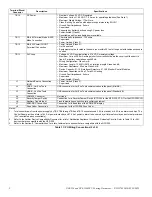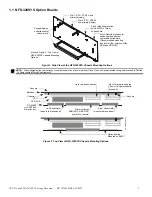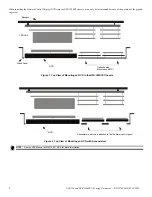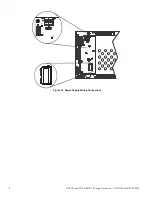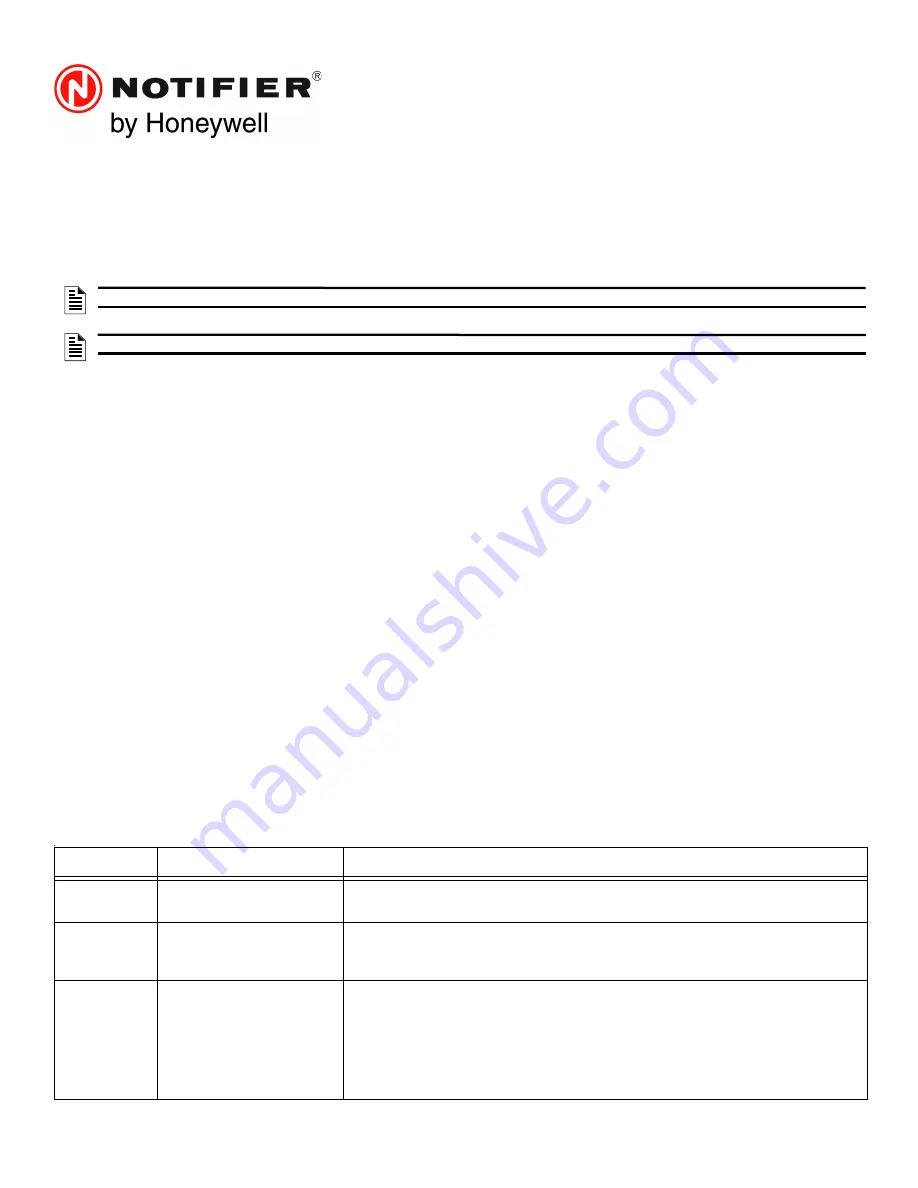
12 Clintonville Road
Northford, CT 06472-1610 USA
800-289-3473 • FAX 203-484-7118
www.notifier.com
NFS-320 and NFS-320SYS
Listing Document
PN 52745LD:G9 5/19/2022 16475
For additional documentation on this product, visit http://notifiermanuals.com. This additional documentation for the NFS-320 may be used as a refer-
ence only.
1 Installation
Wiring methods used shall be in accordance with Standard for Installation and Classification of Burglar and Holdup Alarm Systems, UL 681.
Wiring methods used shall be in accordance with Standard for Central Station Alarm Services, UL 827.
This product is intended to be installed in accordance with the following:
Follow these guidelines when mounting the product’s backbox:
•
Backbox should be installed in a dry, indoor location.
•
It is recommended that this system and its peripherals be installed in an environment with a normal room temperature of 15-27°C/60-80°F and at
a relative humidity of 93% ± 2% RH (non-condensing) at 32°C ± 2°C (90°F ± 3°F).
•
Locate the backbox so the top edge is 66 inches (1.6764 m) above the surface of the finished floor.
•
Access to the cabinet shall be in accordance with NFPA 90, article 110.33.
•
Allow sufficient clearance around cabinet for door to swing freely.
•
Use cables provided to connect dress panel(s) and cabinet door to earth ground.
NOTE:
The term NFS-320 is used to refer to the NFS-320, NFS-320E, NFS-320C, and NFS-320SYS unless otherwise noted.
NOTE:
For Mass Notification applications, Class A circuits called out in this manual are Class X.
•
NFPA 70 - National Electrical Code
•
NFPA 16 - Standard for Deluge-Foam Water Systems
•
NFPA 72 - National Fire Alarm Code
•
NFPA 17 - Standard for Dry Chemical Extinguishing Systems
•
NFPA 12 - Standard on Carbon Dioxide Extinguishing Systems
•
NFPA 17A - Standard for Wet Chemical Extinguishing Systems
•
NFPA 12A - Standard on Halon 1301 Fire Extinguishing Systems •
NFPA 2001 - Standard for Clean Agent Fire Extinguishing Systems
•
NFPA 13 - Standard for Installation of Sprinkler Systems
•
UL 2610 - Standard for Commercial Premises Security Alarm Units and
Systems
•
Canadian Electrical Code, Part I
•
NFPA 15 - Standard for Water Spray Fixed Systems
•
ULC S524 - Standard for the Installation of Fire Alarm Systems •
ULC S561 - Installation and Services for Fire Signal Receiving Centers
and Systems
•
NFPA 2010 - Standard for Fixed Aerosol Fire Extinguishing
System
•
ULC-S527-11 - Standard for Control Units for Fire Alarm Systems
•
NFPA 92 - Standard for Smoke-Control Systems
•
UL 864 Standard for Control Units and Accessories for Fire Alarm
Systems, 10th Edition
•
UL 2572 - Standard for Mass Notification Systems
Terminal Block/
Connector
Description
Specifications
TB4
Alarm & Trouble Output Relays -
Common
• Power-limited (Class 2) only if connected to a power-limited source
• Voltage and Current: Rated 2.0 A at 30 VDC resistive
• Non-supervised
TB5
Supervisory & Security Output
Relay - Common or
programmable
• Power-limited (Class 2) only if connected to a power-limited source
• Voltage and Current: Rated 2.0 A at 30 VDC resistive
• Can be programmed as Alarm via VeriFire Tools
• Non-supervised
TB6 thru TB9
NAC Circuits
• Nominal Operating Voltage: 24 VDC Regulated
• Maximum Current: 1.5A (See Note 1)
• End-Of-Line Resistors: 2.2 K 1/2 W (ELR-2.2K)
• Wiring Configuration: Class B or Class A
• Ground Fault Impedance: 0 ohms
• Maximum Line Impedance: 20 ohms
• Supervised
• Power-limited (Class 2)
Table 1 CPU Wiring Connections (1 of 2)


